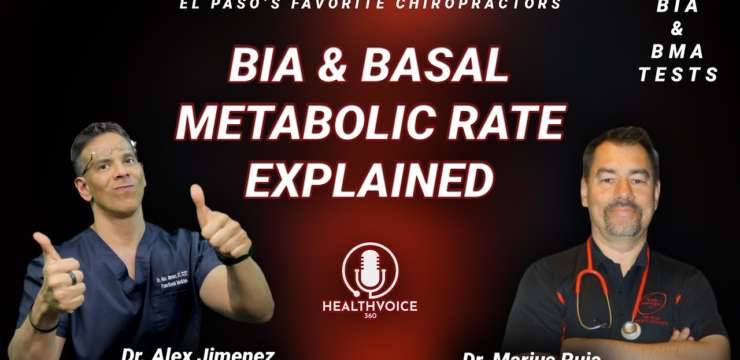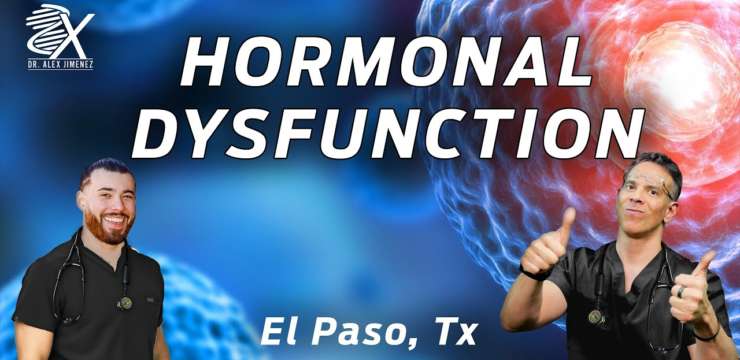
Clinical studies between body composition and chronic conditions have been made, mainly focusing on adipose tissue content and metabolic derangement. Nevertheless, a new scope has been recently projected light upon the lean body mass composition and the repercussions it has on cardiometabolic conditions. The proper way to define lean body mass (LBM) is the total body weight minus the weight of your body’s fat mass. Indeed, it is vital to differentiate lean body mass from muscle mass since they are not the same. Lean body mass includes the weight of organs, skin, bones, body water, and muscle mass. On the other hand, muscle mass is often referred to as skeletal muscle, and it comprises the part of LBM that only takes into account the muscle tissue.
Table of Contents
Applications of body composition and LBM
Body mass index (BMI) was the most common resource to measure metabolic risk in earlier research settings. However, it has been noticed that BMI could not differentiate between fat mass percentage and LBM. In children, BMI, LBM, and fat mass (FM) tend to be varied, mainly because of the interactions of different factors such as maturational stage, sex, age, and race have a major impact on body weight.
Age vs. LBM
However, in adults, LBM is reduced by age and lack of exercise, and the patient’s dietary patterns. Recently, low LBM in adults has been linked to a higher risk of cardiovascular events, diabetes, metabolic syndrome, and mortality. Also, as seen in children and adolescents, the LBM loss and distribution play a major metabolic role. It has been reported that type 2 diabetes patients have reported a decline of lower extremity muscle mass, loss of muscle leading to weakness, mobility, and performance loss.
A study demonstrated that progressively higher HbA1c was associated with lower total, appendicular, and trunk percent lean mass. Besides, high C-reactive protein levels were linked to a decrement in the total lean body mass and all of the before-mentioned sites. Also, diabetes-related comorbidities such as heart disease, peripheral arterial disease, arthritis, neuropathy, hip fracture, amputation, cancer, and pulmonary disease significantly affected the decline of lean body mass. Lastly, this report showed that people with Hb1Ac of 6-6.4% had a notable decline in lean body mass.
Inflammation and LMB
The underlying effect of hyperglycemia and its repercussion of LBM, muscle strength, and performance point to a low-grade inflammatory state. Also, decreased physical activity and neuropathies contribute to the loss of lean body mass. Furthermore, insulin resistance can negatively affect muscle synthesis:
- Decreased muscle protein synthesis.
- Disinhibition of muscle protein breakdown.
In this particular study, the population with higher relative body fat was correlated to the loss of skeletal muscle mass and higher glucose levels.
Following this argument, a study performed in a male cohort study showed that those patients with diabetes or impaired fasting glucose (IFG) treated without insulin sensitizers had a marked loss of LBM and appendicular muscle mass. Furthermore, this study suggested that the treatment of diabetes and IFG with insulin sensitizer may be able to delay muscle mass loss, and therefore contribute to LBM.
Body composition
Overall, body composition and lean body mass have a wide array of clinical applications. Nonetheless, these clinical contributions could not be possible without the right testing tool. However, most of the referenced data in this article were performed by D-XA, and despite this, bioelectrical impedance analysis is the most cost-efficient assessment.
In a body composition assessment, LBM can be easily affected by your water consumption and daily hydration. This is mainly because LBM is comprised in part of extracellular water and intracellular water. Also, the other two compounds are mineral bone and protein content. These are commonly called dry lean mass.
In conclusion, the application of body composition assessment and analysis and the underlying effects of age and hyperglycemia have on LBM content has brought new light into preventing muscle mass. In fact, these referenced studies had one additional objective: apply potential therapeutic strategies such as physical activity, high protein diets, and supplementation to prevent or reverse muscle mass loss.
There might not be enough comparable controlled trials using LMB as a metabolic risk factor as there are for fat mass percentage, BMI, or VAT. Nonetheless, the metabolic and inflammatory effects that are correlated to loss of LBM have many doable therapeutic approaches. – Ana Paola RodrÃguez Arciniega. Master in Clinical Nutrition
Exercise
Lifestyle factors such as exercise regime and dietary approaches can improve muscle mass, as well as insulin resistance. An exercise prescription recommended and tracked by a professional is extremely advised if you desire to improve your body composition.
ANTI-INFLAMMATORY GEN(I)E
Â
Spiced chickpeas
Â
Servings: 3
Cook time: 35 minutes
NFLAM1 can chickpeas (garbanzo beans) rinsed and dried.
- 2 tablespoons olive oil
- Sea salt, or Himalayan salt.
- 2 teaspoons of total spices- like chili powder, curry powder, garam masala, cumin,
smoked paprika, rosemary, thyme, nutmeg, cinnamon, or any commercial spices blend.
Heat the oven to 400°F.
In a mixing bowl, combine the chickpeas with olive oil and salt.
Place them evenly on a baking sheet.
Roast for 20 to 30 minutes, stirring the chickpeas every 10 minutes. They will be ready as soon as they turn golden and crunchy on the outside.
Place them back in the mixing bowl, add the spices, and stir them together.
Enjoy crispy and warm!
References
Kalyani, Rita R et al. “Hyperglycemia is associated with relatively lower lean body mass in older adults.â€Â The journal of nutrition, health & aging vol. 18,8 (2014): 737-43. doi:10.1007/s12603-014-0445-0
Lee, Christine G., et al. “Insulin sensitizers may attenuate lean mass loss in older men with diabetes.” Diabetes care 34.11 (2011): 2381-2386.
Additional Online Links & Resources (Available 24/7)


Online Appointments or Consultations:Â bit.ly/Book-Online-Appointment
Online Physical Injury / Accident Intake Form: bit.ly/Fill-Out-Your-Online-History
Online Functional Medicine Assessment: bit.ly/functionmed
Disclaimer
The information herein is not intended to replace a one-on-one relationship with a qualified health care professional, licensed physician, and is not medical advice. We encourage you to make your own health care decisions based on your research and partnership with a qualified health care professional. Our information scope is limited to chiropractic, musculoskeletal, physical medicines, wellness, sensitive health issues, functional medicine articles, topics, and discussions. We provide and present clinical collaboration with specialists from a wide array of disciplines. Each specialist is governed by their professional scope of practice and their jurisdiction of licensure. We use functional health & wellness protocols to treat and support care for the musculoskeletal system’s injuries or disorders. Our videos, posts, topics, subjects, and insights cover clinical matters, issues, and topics that relate and support, directly or indirectly, our clinical scope of practice.* Our office has made a reasonable attempt to provide supportive citations and has identified the relevant research study or studies supporting our posts. We provide copies of supporting research studies available to regulatory boards and the public upon request. We understand that we cover matters that require an additional explanation of how it may assist in a particular care plan or treatment protocol; therefore, to further discuss the subject matter above, please feel free to ask Dr. Alex Jimenez or contact us 915-850-0900.  Read More…
Dr. Alex Jimenez DC, MSACP, CCST, IFMCP*, CIFM*, CTG*
email:Â coach@elpasofunctionalmedicine.com
phone: 915-850-0900
Licensed in Texas & New Mexico
Disclaimers
Professional Scope of Practice *
The information herein on "Lean Body Mass" is not intended to replace a one-on-one relationship with a qualified health care professional or licensed physician and is not medical advice. We encourage you to make healthcare decisions based on your research and partnership with a qualified healthcare professional.
Blog Information & Scope Discussions
Welcome to El Paso's wellness blog, where Dr. Alex Jimenez, DC, FNP-C, a board-certified Family Practice Nurse Practitioner (FNP-C) and Chiropractor (DC), presents insights on how our team is dedicated to holistic healing and personalized care. Our practice aligns with evidence-based treatment protocols inspired by integrative medicine principles, similar to those found on dralexjimenez.com, focusing on restoring health naturally for patients of all ages.
Our areas of chiropractic practice include Wellness & Nutrition, Chronic Pain, Personal Injury, Auto Accident Care, Work Injuries, Back Injury, Low Back Pain, Neck Pain, Migraine Headaches, Sports Injuries, Severe Sciatica, Scoliosis, Complex Herniated Discs, Fibromyalgia, Chronic Pain, Complex Injuries, Stress Management, Functional Medicine Treatments, and in-scope care protocols.
Our information scope is limited to chiropractic, musculoskeletal, physical medicine, wellness, contributing etiological viscerosomatic disturbances within clinical presentations, associated somato-visceral reflex clinical dynamics, subluxation complexes, sensitive health issues, and functional medicine articles, topics, and discussions.
We provide and present clinical collaboration with specialists from various disciplines. Each specialist is governed by their professional scope of practice and their jurisdiction of licensure. We use functional health & wellness protocols to treat and support care for the injuries or disorders of the musculoskeletal system.
Our videos, posts, topics, subjects, and insights cover clinical matters, issues, and topics that relate to and directly or indirectly support our clinical scope of practice.*
Our office has reasonably attempted to provide supportive citations and has identified the relevant research studies or studies supporting our posts. We provide copies of supporting research studies available to regulatory boards and the public upon request.
We understand that we cover matters that require an additional explanation of how they may assist in a particular care plan or treatment protocol; therefore, to discuss the subject matter above further, please feel free to ask Dr. Alex Jimenez, DC, APRN, FNP-BC, or contact us at 915-850-0900.
We are here to help you and your family.
Blessings
Dr. Alex Jimenez DC, MSACP, APRN, FNP-BC*, CCST, IFMCP, CFMP, ATN
email: coach@elpasofunctionalmedicine.com
Licensed as a Doctor of Chiropractic (DC) in Texas & New Mexico*
Texas DC License # TX5807
New Mexico DC License # NM-DC2182
Licensed as a Registered Nurse (RN*) in Texas & Multistate
Texas RN License # 1191402
ANCC FNP-BC: Board Certified Nurse Practitioner*
Compact Status: Multi-State License: Authorized to Practice in 40 States*
Graduate with Honors: ICHS: MSN-FNP (Family Nurse Practitioner Program)
Degree Granted. Master's in Family Practice MSN Diploma (Cum Laude)
Dr. Alex Jimenez, DC, APRN, FNP-BC*, CFMP, IFMCP, ATN, CCST
My Digital Business Card






